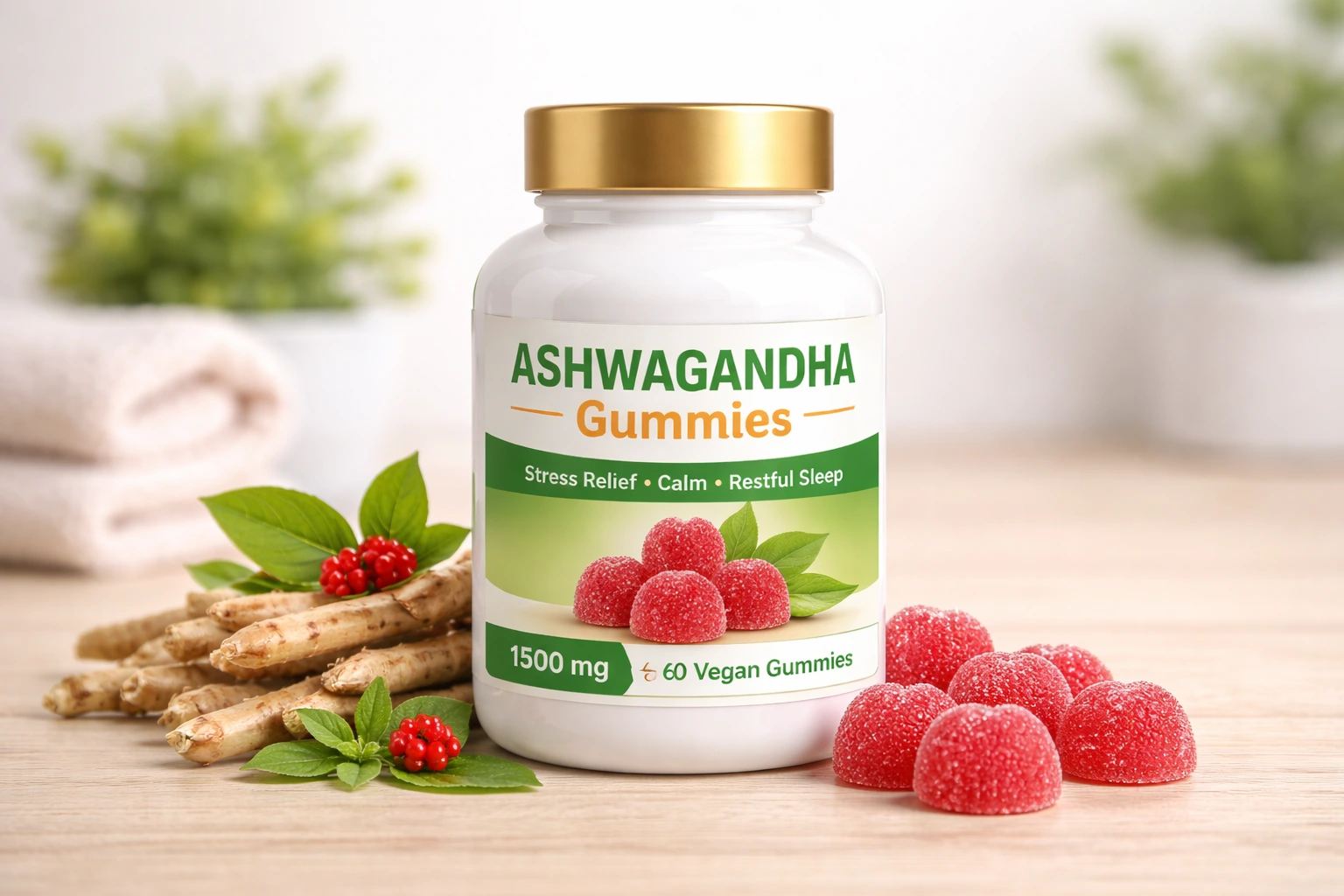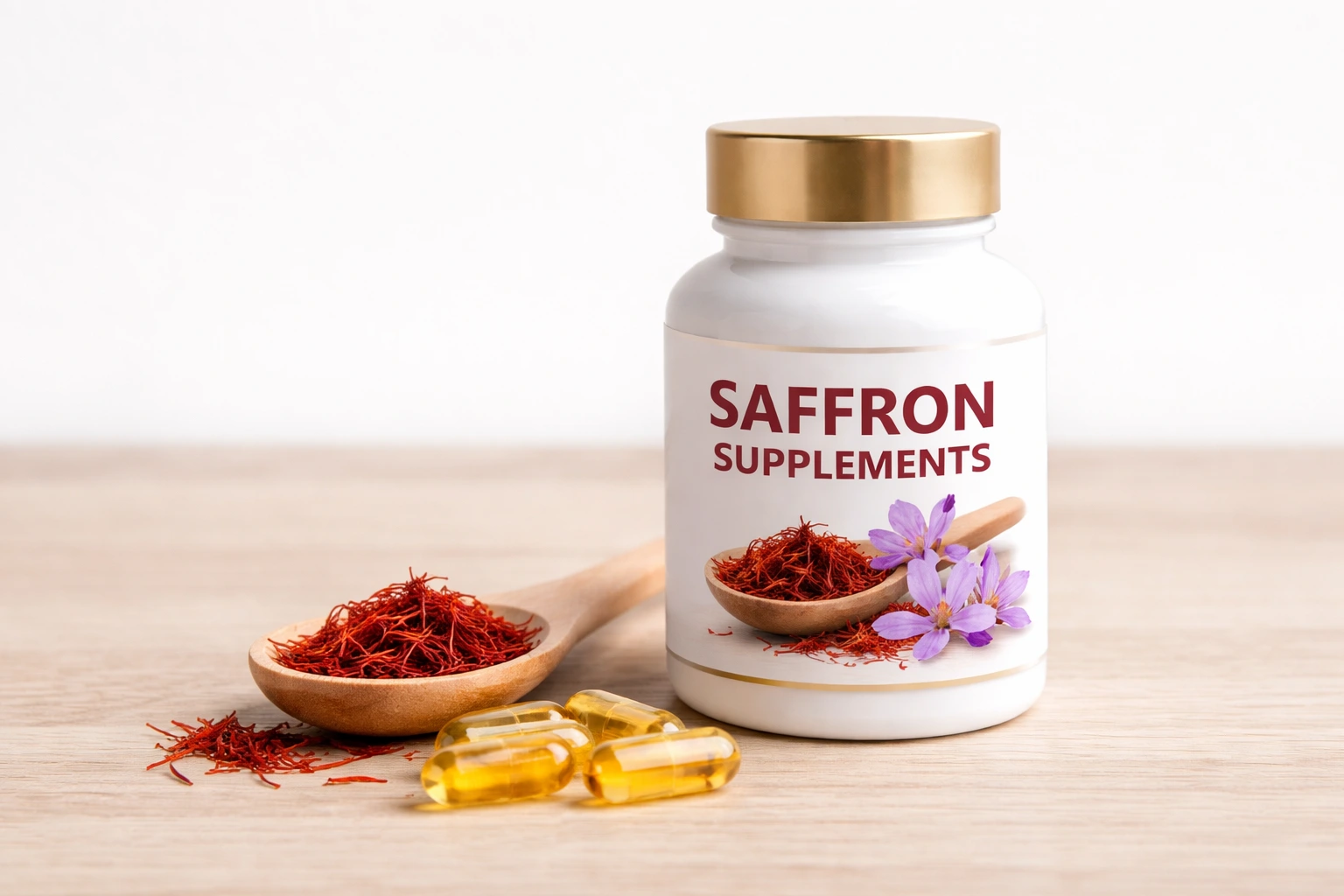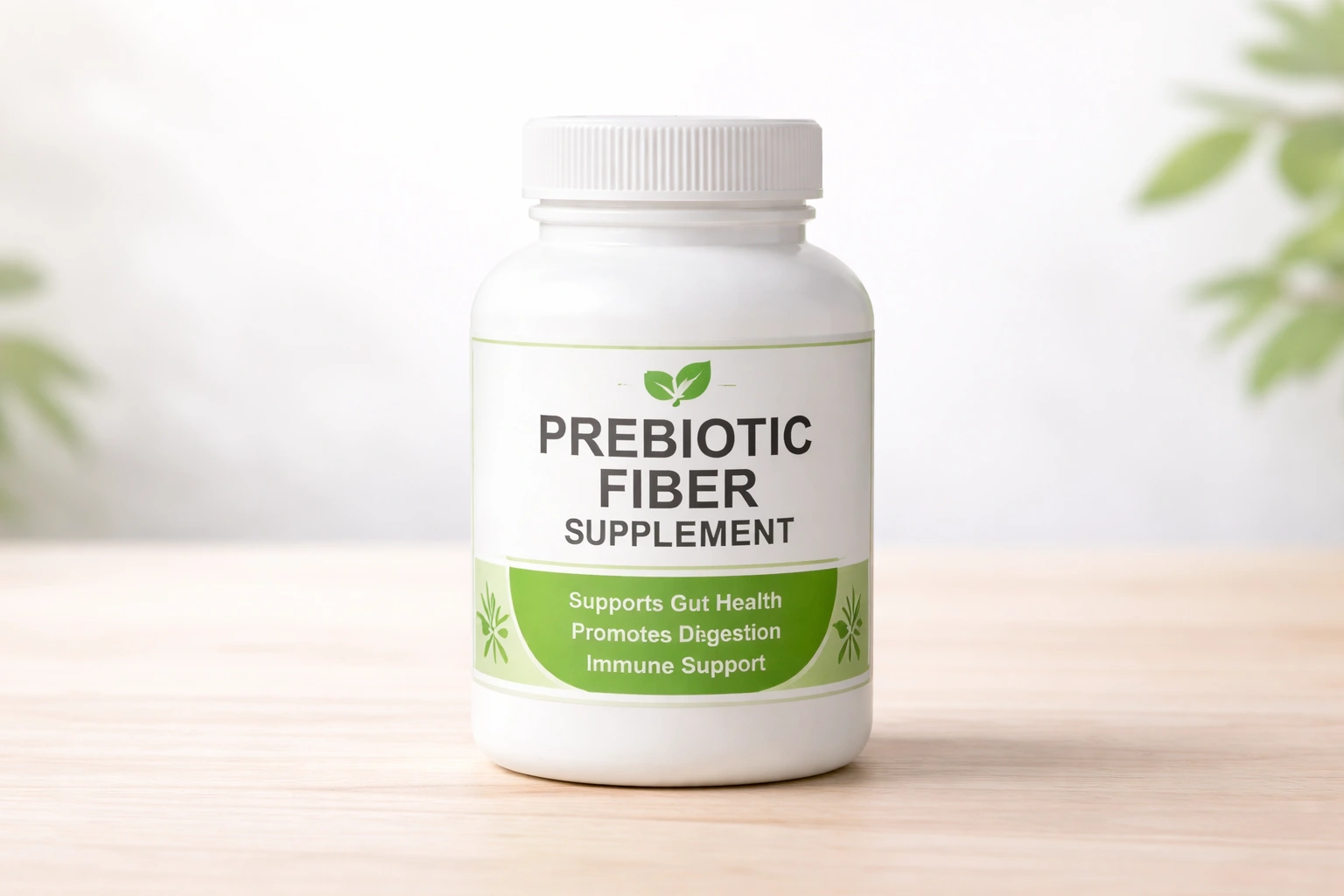The nutraceutical industry is in a perpetual state of growth, fueled by increasing consumer demand for health and wellness solutions. However, for brands operating in this dynamic space, success isn't just about innovative formulations; it's profoundly dependent on navigating the intricate landscape of the nutraceutical supply chain. From the moment a raw ingredient is sourced to when the final product reaches a consumer's hands, numerous inherent risks can critically jeopardize product quality, safety, regulatory compliance, and, ultimately, a brand's hard-earned reputation.

This comprehensive guide will meticulously detail the multifaceted risks woven into the nutraceutical supply chain and provide an exhaustive framework for brands to strategically select a reliable dietary supplement contract manufacturer—a partner indispensable for mitigating these complex challenges and ensuring a resilient, high-quality, and dependable supply chain.
Understanding the Multifaceted Risks in the Nutraceutical Supply Chain
The journey of a nutraceutical product is a complex odyssey, each stage presenting its own unique set of vulnerabilities. Brands must possess a keen awareness of these potential pitfalls to implement effective preventative measures.
1. Raw Material Sourcing and Quality Risks
The foundation of any supplement lies in its ingredients. Risks at this initial stage can ripple throughout the entire supply chain.
-
Adulteration and Substitution (Economically Motivated Adulteration - EMA): This is a pervasive threat, especially in a globalized market. EMA occurs when genuine, often expensive, ingredients are intentionally diluted, replaced with cheaper substitutes, or spiked with undeclared synthetic compounds to increase profit.
-
Example: Turmeric extract diluted with synthetic curcumin, or protein powders spiked with non-protein nitrogen compounds like melamine to falsely inflate protein content.
-
Impact: Compromised product efficacy, safety hazards (e.g., allergic reactions, undeclared pharmaceuticals), and severe legal and reputational damage.
-
-
Purity and Potency Variability: Natural ingredients, botanicals, and even some synthetic compounds can vary significantly in their active ingredient concentration or overall purity. This can stem from differing growing conditions, harvesting techniques, processing methods, or simply natural batch variations.
-
Example: An herbal extract not standardized to its active compound (e.g., silymarin in milk thistle) may have wildly fluctuating potency.
-
Impact: Inconsistent product efficacy, inability to meet label claims, and diminished consumer trust.
-
-
Contamination (Chemical, Biological, Physical): Raw materials are susceptible to various forms of contamination:
-
Chemical: Heavy metals (lead, arsenic, mercury, cadmium), pesticides, herbicides, solvents, mycotoxins (e.g., aflatoxins in botanicals).
-
Biological: Microbial pathogens (Salmonella, E. coli), mold, yeast.
-
Physical: Foreign matter (glass shards, plastic, hair) introduced during harvesting or processing.
-
Impact: Severe health risks to consumers, mandatory product recalls, and catastrophic brand damage.
-
-
Supply Chain Disruptions: Global events can severely impact ingredient availability. These include:
-
Geopolitical instability, trade wars, or new tariffs.
-
Natural disasters (floods, droughts, earthquakes) affecting agricultural regions.
-
Supplier bankruptcies or facility closures.
-
Logistical bottlenecks (e.g., shipping container shortages, port delays).
-
Impact: Production delays, inability to meet demand, increased raw material costs, and potential need for costly reformulations or alternative sourcing.
-
-
Lack of Transparency and Traceability: An opaque supply chain, where the origin and processing history of ingredients are unknown, is a major risk multiplier.
-
Impact: Hinders effective root cause analysis in case of a quality issue, complicates recall efforts, and makes it impossible to verify ethical or sustainable sourcing claims.
-
2. Manufacturing and Quality Control Risks (Internal Process Risks)
Even with perfect raw materials, the manufacturing process itself introduces critical vulnerabilities.
-
Cross-Contamination: In facilities producing multiple products, inadequate cleaning between batches or improper segregation of materials can lead to unintended transfer of allergens (e.g., dairy, soy) or active ingredients between products.
-
Impact: Allergic reactions, inaccurate product composition, and regulatory non-compliance.
-
-
Formulation Inaccuracies: Errors in precise weighing, inaccurate blending, or inconsistent filling during encapsulation or tableting can result in products that do not contain the declared amount of active ingredients or have non-uniform distribution.
-
Impact: Substandard efficacy, potential safety issues due to overdosing/underdosing, and failure to meet label claims.
-
-
Process Deviations and Inconsistencies: Failure to strictly adhere to validated manufacturing procedures (Standard Operating Procedures - SOPs) can lead to inconsistent product quality, stability, and dissolution rates. This includes variations in mixing times, temperatures, or pressure.
-
Impact: Batch-to-batch variability, reduced shelf life, and products that don't perform as expected.
-
-
Inadequate Quality Control (QC) Testing: Insufficient, improperly executed, or poorly validated testing at various stages (raw material, in-process, finished product) means quality issues might go undetected until products are already on the market.
-
Impact: Release of unsafe or ineffective products, leading to recalls and consumer harm.
-
-
Poor Documentation and Record-Keeping: Incomplete, inaccurate, or missing batch records, equipment logs, and training records cripple a brand's ability to demonstrate cGMP compliance, trace issues, or conduct effective root cause analyses.
-
Impact: Regulatory warning letters, potential fines, and difficulties during audits.
-
-
Equipment Malfunctions or Failures: Uncalibrated, poorly maintained, or outdated equipment can lead to production inefficiencies, product defects, and contamination risks.
3. Regulatory and Compliance Risks
The dietary supplement industry operates under a strict regulatory framework, and non-compliance carries severe consequences.
-
Failure to Meet Current Good Manufacturing Practices (cGMP) Requirements: This is a foundational regulatory risk. Non-adherence to cGMPs (e.g., 21 CFR Part 111 in the U.S.) signifies that products are not consistently produced and controlled according to quality standards.
-
Impact: FDA warning letters, import alerts, product detention, forced recalls, facility shutdowns, and potential legal action.
-
-
Labeling Errors and Misbranding: Incorrect, incomplete, or misleading information on product labels (e.g., inaccurate Supplement Facts panels, undeclared allergens, unapproved health claims, missing required warnings).
-
Impact: Products deemed misbranded, leading to recalls, consumer complaints, and regulatory fines.
-
-
Adulterated Products: Products that contain unapproved ingredients, contaminants beyond acceptable limits, or that do not meet identity, purity, strength, or composition standards.
-
Impact: Mandatory recalls, severe legal penalties, and irreparable damage to public trust.
-
-
Unsubstantiated Claims: Making health claims that are not supported by adequate scientific evidence, particularly implied disease claims, can lead to enforcement actions from regulatory bodies.
-
Evolving Regulations: The global regulatory landscape for supplements is dynamic. Failure to continuously monitor and adapt to new regulations (e.g., new ingredient restrictions, updated labeling requirements, international market specific rules) can lead to rapid non-compliance.
-
Import/Export Compliance: For brands with international aspirations, navigating customs regulations, country-specific ingredient restrictions, and diverse labeling laws adds immense complexity and risk.
4. Economic and Brand Reputation Risks
All the aforementioned risks converge to create significant economic and reputational vulnerabilities for brands.
-
Escalated Costs: Supply chain disruptions, quality failures, and regulatory non-compliance directly translate to increased operational expenses. This includes costs for re-work, re-testing, product destruction, inventory write-offs, legal fees, and regulatory fines.
-
Erosion of Brand Reputation and Consumer Trust: Product quality issues, safety incidents, or highly publicized regulatory actions can severely damage a brand's image, erode consumer confidence, and lead to a dramatic decrease in sales, often with long-term negative impacts.
-
Loss of Market Share: Competitors free from such issues can quickly capitalize on a brand's misfortune, leading to a permanent loss of market position.
-
Litigation and Liability: Product safety issues can lead to costly class-action lawsuits and significant liability claims.
-
Counterfeit Products: The rise of online marketplaces increases the risk of counterfeit versions of popular supplements, harming legitimate brands through lost sales and potential consumer health risks from substandard fakes.
Selecting the Right Dietary Supplement Contract Manufacturer: A Strategic Approach to Risk Mitigation
Choosing a competent, transparent, and reliable dietary supplement contract manufacturer is not merely a vendor selection; it's a critical strategic partnership that can profoundly mitigate the myriad risks outlined above. This decision can be the single most important factor in a brand's long-term success.
Here's a comprehensive framework for brands to navigate this crucial selection process:
1. Meticulous Due Diligence and Unwavering Commitment to cGMPs
This is the non-negotiable foundation of any manufacturing partnership.
-
Current Good Manufacturing Practices (cGMP) Compliance:
-
Certification: Insist on a current cGMP certificate from a reputable, independent third-party auditor (e.g., NSF International, USP, UL, TGA). This shows they voluntarily adhere to higher standards.
-
Audit Reports: Request to review their most recent audit reports. Pay close attention to any observations, findings, and, crucially, their Corrective and Preventive Actions (CAPA) plans to address them. A manufacturer's response to an audit finding reveals a lot about their quality culture.
-
Regulatory History: Research their history with regulatory bodies (e.g., FDA warning letters, recalls). A clean record is preferable, but understanding how they handled past issues (if any) is important.
-
-
On-Site Facility Audit: Whenever feasible, conduct your own detailed on-site audit. Assess:
-
Cleanliness and Organization: Are facilities meticulously clean, organized, and free from clutter?
-
Equipment Maintenance & Calibration: Is equipment well-maintained, regularly calibrated, and suitable for your product's specific needs?
-
Process Controls: Are there clear SOPs in place for every step? Are personnel following them rigorously?
-
Segregation & Airflow: How do they prevent cross-contamination, especially for allergens or potent ingredients? Are there separate areas for raw materials, production, and finished goods? Is the HVAC system designed to prevent contamination?
-
Personnel Training: Are employees adequately trained and regularly retrained on cGMPs and specific job functions?
-
2. Robust Quality Systems and Comprehensive Testing Protocols
A manufacturer's commitment to quality should be evident in every facet of their operation, backed by verifiable testing.
-
Multi-Stage Quality Control (QC) Program:
-
Raw Material Testing: Beyond a Certificate of Analysis (CoA) from the supplier, does the manufacturer conduct their own in-house identity testing for every incoming lot? Do they test for purity (e.g., heavy metals, pesticides, microbial load, mycotoxins)?
-
In-Process Testing: How do they monitor product quality during manufacturing? This includes blend uniformity, tablet hardness, capsule fill weight, dissolution rates for tablets/capsules, and pH for liquids.
-
Finished Product Release Testing: What final tests are performed before a batch is released? This should include identity, potency (ensuring label claims are met), purity (final check for contaminants), and stability (e.g., disintegration for solid forms).
-
-
Third-Party Independent Testing: Does the manufacturer use external, ISO-accredited laboratories for additional, unbiased verification of critical parameters (e.g., heavy metals, banned substances, potency)? This provides an extra layer of assurance for brands and consumers.
-
Analytical Capabilities: Inquire about their in-house laboratory equipment and capabilities (e.g., HPLC, GC-MS, ICP-MS, FTIR, microbiological testing labs). This demonstrates their capacity for thorough analysis.
-
Supplier Qualification Program: Demand to understand their rigorous process for vetting and continuously qualifying raw material suppliers. This should include audits, review of supplier CoAs, and independent testing of incoming materials. This is a primary defense against raw material risks.
-
Traceability Systems: A sophisticated system to track every single ingredient lot number from incoming receipt through manufacturing processes to the specific finished product batches. This is invaluable for rapid recall management and root cause analysis in case of an issue.
-
Stability Testing Program: A robust program that conducts real-time and/or accelerated stability studies to accurately determine and validate the product's shelf life under various storage conditions. This prevents products from degrading on the shelf.
3. Deep Regulatory Compliance and Market Access Expertise
Navigating global regulatory complexities is a specialty a good manufacturer provides.
-
In-depth Knowledge of Target Market Regulations: Beyond just FDA cGMPs, do they have expertise in relevant international regulations if you plan to export (e.g., EU regulations, Health Canada, TGA for Australia, specific Asian market requirements)?
-
Regulatory Support Services: Does their team offer support with:
-
Label Review: Ensuring all aspects of your product label are compliant, including ingredient lists, Supplement Facts/Nutrition Facts panels, allergen declarations, mandatory warnings, and approved claims.
-
Claim Substantiation: Guiding you on what types of claims are permissible (e.g., structure/function claims, qualified health claims) and what level of scientific evidence is required to substantiate them, protecting you from FTC or FDA scrutiny.
-
Novel Ingredient Review: Assessing the regulatory status of new or unique ingredients you wish to use.
-
Adverse Event Reporting: Managing and reporting any adverse events associated with your product to the relevant authorities.
-
-
Experience with Specific Certifications: If your brand targets niche markets or requires specific certifications (e.g., USDA Organic, Non-GMO Project Verified, Halal, Kosher, Informed-Sport, Vegan/Vegetarian Society), confirm their ability and experience in obtaining and maintaining these for your products. This often involves separate audits and stringent adherence to specific standards.
4. Communication, Transparency, and a True Partnership Approach
The best relationships are built on trust and open communication.
-
Proactive and Transparent Communication: Look for a manufacturer who provides regular updates, communicates potential challenges openly and early, and is responsive to your inquiries. A clear point of contact is essential.
-
Collaborative Mindset: A good partner views your success as their own. They should be willing to brainstorm solutions, offer expert advice, and adapt to your brand's evolving needs.
-
Flexibility and Customization: Assess their willingness and ability to accommodate custom formulations, unique packaging designs, specific raw material preferences, and evolving production schedules.
-
Problem-Solving Approach: Inquire about their internal processes for addressing non-conformances, resolving issues, and implementing corrective actions. A proactive and systematic approach is key.
5. Supply Chain Resilience and Proactive Risk Mitigation Strategies
A strong manufacturer actively works to fortify its own supply chain against global disruptions.
-
Diversified Sourcing Network: Ask about their network of raw material suppliers. Do they rely on single sources, or do they have qualified alternative suppliers for critical ingredients to prevent shortages?
-
Inventory Management: Understand their inventory management practices for both raw materials and finished goods. Do they maintain safety stock levels?
-
Geographic Diversity: For globally sourced ingredients, do they work with suppliers from different regions to hedge against localized disruptions?
-
Contingency Planning: Discuss their formal contingency plans for various scenarios: natural disasters, supplier failures, equipment breakdowns, or unforeseen surges in demand.
-
Vertical Integration (if applicable): Some manufacturers have a degree of vertical integration (e.g., in-house raw material processing), which can reduce reliance on external suppliers for certain components.
6. Cost Efficiency, Value Assessment, and Scalability
While pricing is always a factor, it should be evaluated in the context of the comprehensive value provided.
-
Transparent Pricing Structure: Ensure their pricing is clear, detailed, and transparent, with no hidden fees for testing, documentation, or basic services.
-
Cost vs. Quality: Resist the temptation to choose the lowest bidder. A manufacturer with robust quality systems, comprehensive testing, and strong regulatory compliance will ultimately save you money in the long run by preventing costly issues like recalls, fines, and reputation damage.
-
Minimum Order Quantities (MOQs): Understand their MOQs for different product types and services. Ensure they align with your brand's current scale and future growth projections. Some cater to startups, others to large-volume enterprises.
-
Scalability: Can they grow with your brand? Do they have the capacity to handle increased production volumes as your products gain market traction?
Conclusion: Building a Resilient Supply Chain Through Strategic Partnerships
Navigating the inherent risks of the nutraceutical supply chain demands a proactive, informed, and strategic approach. By prioritizing unwavering quality, stringent regulatory compliance, transparent operations, and supply chain resilience, brands can effectively mitigate potential pitfalls and build a dependable pipeline for their products. The cornerstone of this overarching strategy lies in the meticulous selection of a dietary supplement contract manufacturer.
By conducting thorough due diligence—evaluating a manufacturer's cGMP adherence, robust quality systems, regulatory expertise, communicative approach, and commitment to supply chain resilience—brands can secure a reliable, long-term partner. This strategic alliance not only ensures the consistent production of high-quality, safe, and compliant supplements but also acts as a vital ally in safeguarding brand reputation and propelling sustainable growth in the dynamic and ever-evolving nutraceutical market.
Authoritative Sources and References
- U.S. Food and Drug Administration (FDA) - Dietary Supplements. Retrieved from https://www.fda.gov/food/dietary-supplements
- FDA - Current Good Manufacturing Practice (cGMP) Regulations for Dietary Supplements (21 CFR Part 111). Retrieved from https://www.fda.gov/food/dietary-supplements-guidance-documents-regulatory-information/current-good-manufacturing-practice-cgmp-regulations
- NSF International. Third-Party Certification Programs for Supplements. Retrieved from https://www.nsf.org/
- U.S. Pharmacopeia (USP). Quality Standards and Verification Programs. Retrieved from https://www.usp.org/
- Council for Responsible Nutrition (CRN). Scientific, Regulatory, and Communication Resources. Retrieved from https://www.crnusa.org/
- Supply Chain Management Review (SCMR). Supply Chain Risk & Resilience Articles. Search “Nutraceutical Supply Chain Risk” or “Supply Chain Resilience” on https://www.scmr.com/
- American Botanical Council (ABC) - Botanical Adulteration Prevention Program (BAPP). Retrieved from https://www.herbalgram.org/resources/bapp/
- World Health Organization (WHO). Guidelines on Good Manufacturing Practices. Retrieved from https://www.who.int/medicines/areas/quality_safety/quality_assurance/production/en/
Note: This list provides general authoritative sources. For specific regulations and detailed guidelines pertinent to your target market, always consult the official websites of the governing regulatory bodies in those regions.






